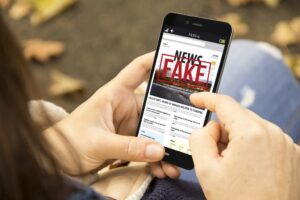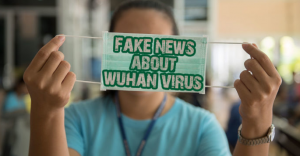With the spread of novel Coronavirus (2019-nCoV) from the Chinese city of Wuhan, the origin and epicenter of the virus, thousands of news of 2019-nCoV are being reported all over the world. But fake news is more viral, as the World Health Organization warned that “we’re in a coronavirus ‘infodemic’.” Korean Media are engrossed in disseminating false information and slanted reports, which regenerates fear, anxiety and hatred in public.
SNS (Social Networking Service) is another source of bogus information. Korean government pledged for a forceful response to the disinformation circulating on social media. Eight Korean young men has been arrested for spreading fake news on SNS. Social media companies and internet giants, such as Google, Facebook, Youtube, said that they are taking steps to tackle the misinformation spreading on their platforms. But fake news is spreading faster than the virus. Moreover, it is impossible to censor and block fake news completely.
Koreans are struggling to make up for the media loophole by themselves. Some Korean university students created a website and mobile app in order to pinpoint the most needful information and visualize it. These websites, ‘Corona map’ and ‘Corona-nearby’, show the number and the moving path of confirmed patients and those who are being tested on a map. The developers collected the real time text data from Korea Centers for Disease Control & Prevention, extracted coordinates from it, and marked them on a map. The location of quarantine and clinic nearby can be also seen on the map. ‘Corona-map’ creates 2 million views on average a day and went down on 1st January with an explosive increase of viewers. SBS, one of the three main broadcasting companies in Korea which has reported fake news on their main news and been condemned, followed to introduce the form of visualized interactive reports including the timeline and the number of confirmed cases.
Fake news discredit the mainstream media. Citizens want credible information and Koreans helped themselves in order to obtain it. When times of epidemic or disaster crisis occur in any society, it is essential that truthful and honest statements are issued by media on a regular and prompt basis, so that the millions of individuals can themselves make informed decisions relating to their own health and safety. Media should stop revealing misinformation and irresponsible reports, and also make the best of delivering facts prudently so that can let citizens be preventive for the crisis.
Kayla Hong
Asia Journal
(Los Angeles Times Advertising Supplement)




